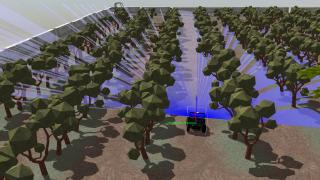
Want to effectively use untapped data that is all around us—from traffic streaming data to social media data—to discover a desired solution? A new University of Michigan-Dearborn graduate program is going to teach students to do just that.
The 30-credit-hour Master of Science in Data Science degree teaches students how to locate relevant data, clean it, manage it, analyze it, interpret it and use insights drawn from it.
Housed in the College of Engineering and Computer Science (CECS) and starting this fall, this interdisciplinary program will educate students on how to manage large-scale, complex data, formulate and design data analytic solutions and communicate the implications to stakeholders.
Computer and Information Science Professor Qiang Zhu said the program was a great fit for the campus because of the educational need and career opportunities, and the university’s faculty expertise in the field and collaborations with data scientists in the industry.
“Data science has a wide range of applications in all areas, from engineering to healthcare to business to social studies. Knowledge extracted from data, for example, helps drive evidence-based decisions on what can be a best next step for an organization,” said Zhu, noting the degree was in development for more than a year and created with collaboration among all four campus colleges.
The graduate program’s curriculum consists of required core courses and technical electives, providing opportunities to build knowledge and professional skills in various data science areas like computational intelligence, data analytics applications, business analytics and ‘big data’ informatics.
Zhu said data explosion has been happening in recent years. Because of the rate of technological advances, more data is collected than most know what to do with. Companies, governments, and others are striving to convert data into actionable knowledge.
The data science field is in high demand and currently the demand does not meet the supply, Zhu said. That equals many opportunities for those who do understand how to interpret what’s been collected.
“For many application problems such as autonomous vehicle control and smart automotive commerce, the solution lies in the data. Our job is to prepare students to know what to look for and how to find it.”
Learn more about UM-Dearborn’s Master of Science degree in data science.






